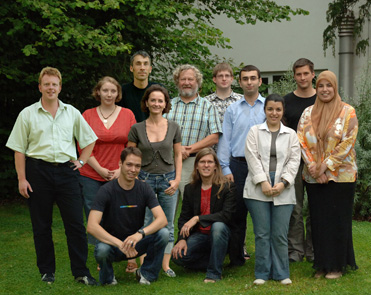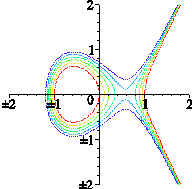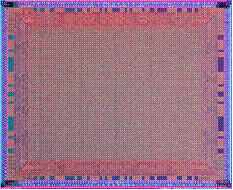Introduction

Since December 2004, a new research group has joined the b-it: the cosec group (computer security) headed by Prof. Dr. Joachim von zur Gathen. Its current members can be found on our member list . The group's teaching focuses on various aspects of computer security, while its research addresses, in addition, questions of computer algebra, computational complexity, and finite field computations. Actually, even the problems considered in these other areas are often driven by cryptographic concerns.

The teaching program of cosec aims to provide a broad background in modern cryptography and computer security, and also offers courses and seminars on more specialized areas, which may lead to a thesis topic for interested students. The backbone course, called Cryptography I, is used as a prerequisite in most other courses. These comprise a regularly offered Cryptography II, dealing with more advanced topics, as well as courses that are given with varying frequency. In the past, these have comprised e? (Electronic Cash), Efficient Cryptography , Bluetooth Security , and Introduction to Computer Security . Furthermore, there is a seminar in which students present work of current interest from various sources. In addition to the technical contents, such seminars enhance the students' facility with various media for presentation, and increase their confidence in speaking in front of an audience. Cosec also runs a regular Research Seminar (Oberseminar) in which both members of the group and guests from outside present the latest and greatest research results.
The courses are geared towards the b-it Media Informatics students, but most of them are also open to university students from Aachen and Bonn. In fact, the group actively participates in the IPEC (International Programme of ExcellenCe) , whose courses are offered outside the regular semester times and thus enable eager university students to collect credits more rapidly than otherwise possible: turbo studies .
 The research of cosec focuses on cryptography and topics contributing to it. Elliptic curves is a hot keyword in cryptographic circles these days. They provide the basis for various cryptographic systems, be it to encrypt an electronic document, to sign it, to authenticate oneself via an insecure channel, or to identify oneself to a communication partner. The basis to that is a plane curve with the property that any line intersects it in three points. This is the basis for an addition which leads to enough structure to make an elliptic curve usable in cryptography. On the other hand, as a non linear set it has a suitably difficult structure to prevent a number of clever attacks applicable to other cryptographic tools.
The research of cosec focuses on cryptography and topics contributing to it. Elliptic curves is a hot keyword in cryptographic circles these days. They provide the basis for various cryptographic systems, be it to encrypt an electronic document, to sign it, to authenticate oneself via an insecure channel, or to identify oneself to a communication partner. The basis to that is a plane curve with the property that any line intersects it in three points. This is the basis for an addition which leads to enough structure to make an elliptic curve usable in cryptography. On the other hand, as a non linear set it has a suitably difficult structure to prevent a number of clever attacks applicable to other cryptographic tools.  One major research topic in our group therefore is to accelerate the addition on these elliptic curves as much as possible using various techniques from hard- and software design. Our FPGA crypto processor can calculate a digital signature based on elliptic curves in 0.18 ms - the world record at the time of its construction.
One major research topic in our group therefore is to accelerate the addition on these elliptic curves as much as possible using various techniques from hard- and software design. Our FPGA crypto processor can calculate a digital signature based on elliptic curves in 0.18 ms - the world record at the time of its construction.
A different topic is the factorization of polynomials. This falls within the wider area of computer algebra and has applications concerning elliptic curves, but is a challenge in itself. The group holds the world record - factoring a polynomial of degree more than one million (over the binary field).  The picture below was taken at the computer algebra conference CASC 2005 in Greece. The newspaper interview introduces the head of cosec as the "guru" of computer algebra. CASC 2007 will be hosted in the b-it building.
The picture below was taken at the computer algebra conference CASC 2005 in Greece. The newspaper interview introduces the head of cosec as the "guru" of computer algebra. CASC 2007 will be hosted in the b-it building.
In the spring of 2007, the workshop Schüler-Krypto 2007 for high school students will again aim to give a first insight into cryptography. It provides pupils and teachers with the opportunity to learn one specific cryptographic system, namely RSA, and to apply it themselves in a specially prepared environment. In the end, they will have built up a public-key infrastructure - a task which at a larger scale still fazes providers like Telekom.





